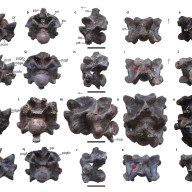Chocolate can be a guilty pleasure. But according to new scientific findings, a daily dark chocolate fix can lower blood pressure, reduce diabetes risk and even boost memory. It can also aid in preserving the world’s dwindling rainforest.
Jewel of the rainforest
>> Cacao trees, the source of cocoa beans that are processed to make chocolate, are grown in tropical regions all over the world. These small trees thrive under the lush canopy of the rainforest where they obtain the correct amount of humidity, precipitation, shade, wind and nutrients. Along with coffee, cocoa beans are one of the few food crops that can coexist with a forest.
Unfortunately, cocoa beans can be grown in full sunlight as well as shade. For very poor cocoa farmers, the lure of increased income from higher yields is a strong incentive for them to pull out their axes and chop down trees, creating sunny plantations with little biodiversity in flora and fauna.
Ecological impact
>> Sadly, as world demand for chocolate grows, more cocoa is being grown on large, unshaded, monocrop plantations. This farming method not only destroys the dwellings of rainforest creatures but also degrades the conditions cacao trees need to grow properly. Why take such an ecologically devastating action? Because, in the short term, chemical-intensive cacao plantations produce more fruit pods.
That’s bad news, not only for the farmers, but also for the macaws and monkeys who’ve lost their habitat. To counteract the effects of global warming, we need all the trees we can get.
Look for the fair trade logo
>> On the bright side, you can take a bite out of deforestation and put a few more dollars in farmers’ pockets by choosing chocolate from sustainable sources of cocoa beans. Chocolate displaying the fair trade logo ensures cocoa farmers are reasonably compensated for their crop. This means they can afford to invest in health care, schooling for their children, and more Mother Nature-friendly agricultural practices such as planting native shade trees. An organic label on your sweet treat helps save the planet from toxic fertilizers and pesticides.
alive is Canada’s award-winning natural health and wellness magazine. Every month alive focuses on traditional and holistic healing, beauty, environmental issues, nutrition, emotional well-being, and supplementation. Pick alive up for free at your natural health store.
Visit alive.com for more.


















